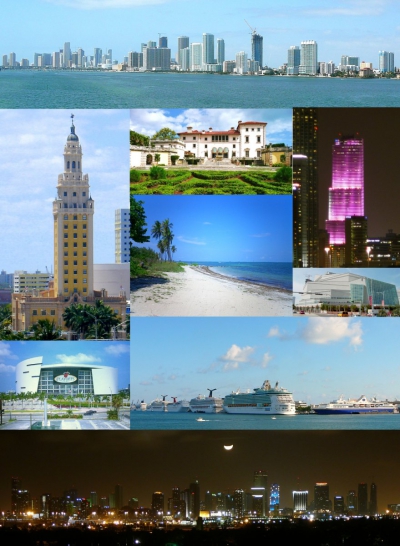Manuel Antonio Noriega Moreno (Spanish pronunciation: [manwel nojea]; February 11, 1934 May 29, 2017) was a Panamanian dictator, politician and military officer who was the de facto ruler of Panama from 1983 to 1989. An authoritarian ruler who amassed a personal fortune through drug trafficking operations, he had long standing ties to United States intelligence agencies before the U.S. invasion of Panama removed him from power.
Born in Panama City to a poor mestizo family, Noriega studied at the Chorrillos Military School in Lima and at the School of the Americas. He became an officer in the Panamanian army, and rose through the ranks in alliance with Omar Torrijos. In 1968, Torrijos overthrew President Arnulfo Arias in a coup. Noriega became chief of military intelligence in Torrijos's government, and after Torrijos's death in 1981, consolidated power to become Panama's de facto ruler in 1983. Beginning in the 1950s, Noriega worked with U.S. intelligence agencies, and became one of the Central Intelligence Agency's most valued intelligence sources. He also served as a conduit for illicit weapons, military equipment, and cash destined for U.S.-backed forces throughout Latin America.
Noriega's relationship with the U.S. deteriorated in the late 1980s after his relationship with intelligence agencies in other countries came to light, and his involvement in drug trafficking was investigated further. In 1988, Noriega was indicted by federal grand juries in Miami and Tampa on charges of racketeering, drug smuggling, and money laundering. The U.S. launched an invasion of Panama following failed negotiations seeking his resignation, and Noriega's annulment of the 1989 Panamanian general election. Noriega was captured and flown to the U.S., where he was tried on the Miami indictment, convicted on most of the charges, and sentenced to 40 years in prison, ultimately serving 17 years after a reduction in his sentence for good behavior. Noriega was extradited to France in 2010, where he was convicted and sentenced to seven years of imprisonment for money laundering. In 2011 France extradited him to Panama, where he was incarcerated for crimes committed during his rule, for which he had been tried and convicted in absentia in the 1990s. Diagnosed with a brain tumor in March 2017, Noriega suffered complications during surgery, and died two months later.
Noriega's authoritarian rule in Panama has been described as a dictatorship, and was marked by repression of the media, an expansion of the military, and the persecution of political opponents, effectively controlling the outcomes of any elections. He relied upon military nationalism to maintain his support, and did not espouse a specific social or economic ideology. Noriega was known for his complicated relationship with the U.S., being described as being its ally and nemesis simultaneously. He has been called one of the best-known dictators of his time, and compared to authoritarian rulers such as Muammar Gaddafi and Augusto Pinochet.
Miami (), officially the City of Miami, is a coastal metropolis located in Miami-Dade County in southeastern Florida (United States). With a population of 442,241 as of the 2020 census, it is the second-most populous city in Florida, eleventh-most populous city in the Southeast, and 44th-most populous city in the United States. Miami is the core of the nation's eighth-largest metropolitan area with 6,138,333 people. The city has the third-largest skyline in the U.S. with over 300 high-rises, 58 of which exceed 491 ft (150 m).Miami is a major center and leader in finance, commerce, culture, arts, and international trade. The metro area is by far the largest urban economy in Florida and the 12th largest in the United States, with a GDP of $344.9 billion as of 2017. In 2020, Miami was classified as a Beta + level global city by the GaWC. In 2019, Miami ranked seventh in the United States and 31st among global cities in business activity, human capital, information exchange, cultural experience, and political engagement. According to a 2018 UBS study of 77 world cities, the city was ranked as the third-richest in the world and the second-richest in the United States in purchasing power. Miami is one of the largest majority-minority cities in the United States and the fourth-largest majority-Hispanic city in the United States, with 70.2% of its population being Hispanic in 2020.Greater Downtown Miami has one of the largest concentrations of international banks in the United States, and is home to many large national and international companies. The Health District, home to Jackson Memorial Hospital and the Leonard M. Miller School of Medicine at the University of Miami and others, is a major center for hospitals, clinics, and the biotechnology and medical research industries. PortMiami is the busiest cruise port in the world in both passenger traffic and cruise lines, and refers to itself as the "Cruise Capital of the World". Miami is also a major tourism hub for international visitors, ranking second in the country after New York City. Miami has been called the Gateway to Latin America.

1992Jul, 10
In Miami, former Panamanian leader Manuel Noriega is sentenced to 40 years in prison for drug and racketeering violations.
Choose Another Date
Events on 1992
- 1Feb
Bhopal disaster
The Chief Judicial Magistrate of Bhopal court declares Warren Anderson, ex-CEO of Union Carbide, a fugitive under Indian law for failing to appear in the Bhopal disaster case. - 1Mar
Socialist Federal Republic of Yugoslavia
Bosnia and Herzegovina declares its independence from Socialist Federal Republic of Yugoslavia. - 2Mar
United Nations
Armenia, Azerbaijan, Kazakhstan, Kyrgyzstan, Moldova, San Marino, Tajikistan, Turkmenistan and Uzbekistan join the United Nations. - 27Apr
International Monetary Fund
The Russian Federation and 12 other former Soviet republics become members of the International Monetary Fund and the World Bank. - 23Jul
Pope Benedict XVI
A Vatican commission, led by Joseph Ratzinger, establishes that limiting certain rights of homosexual people and non-married couples is not equivalent to discrimination on grounds of race or gender.

 English
English  español
español  français
français  português
português  русский
русский  العربية
العربية  简体中文
简体中文 